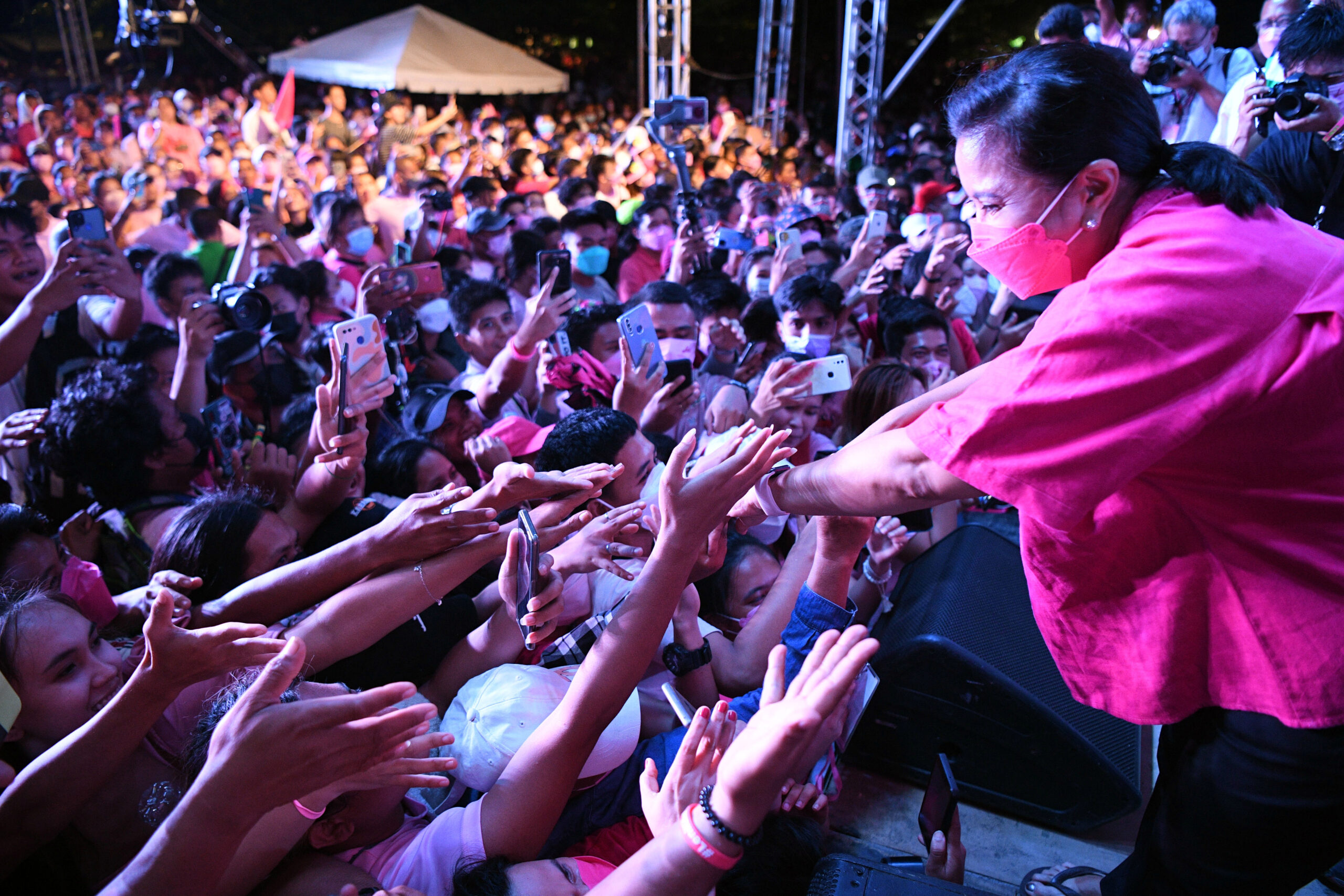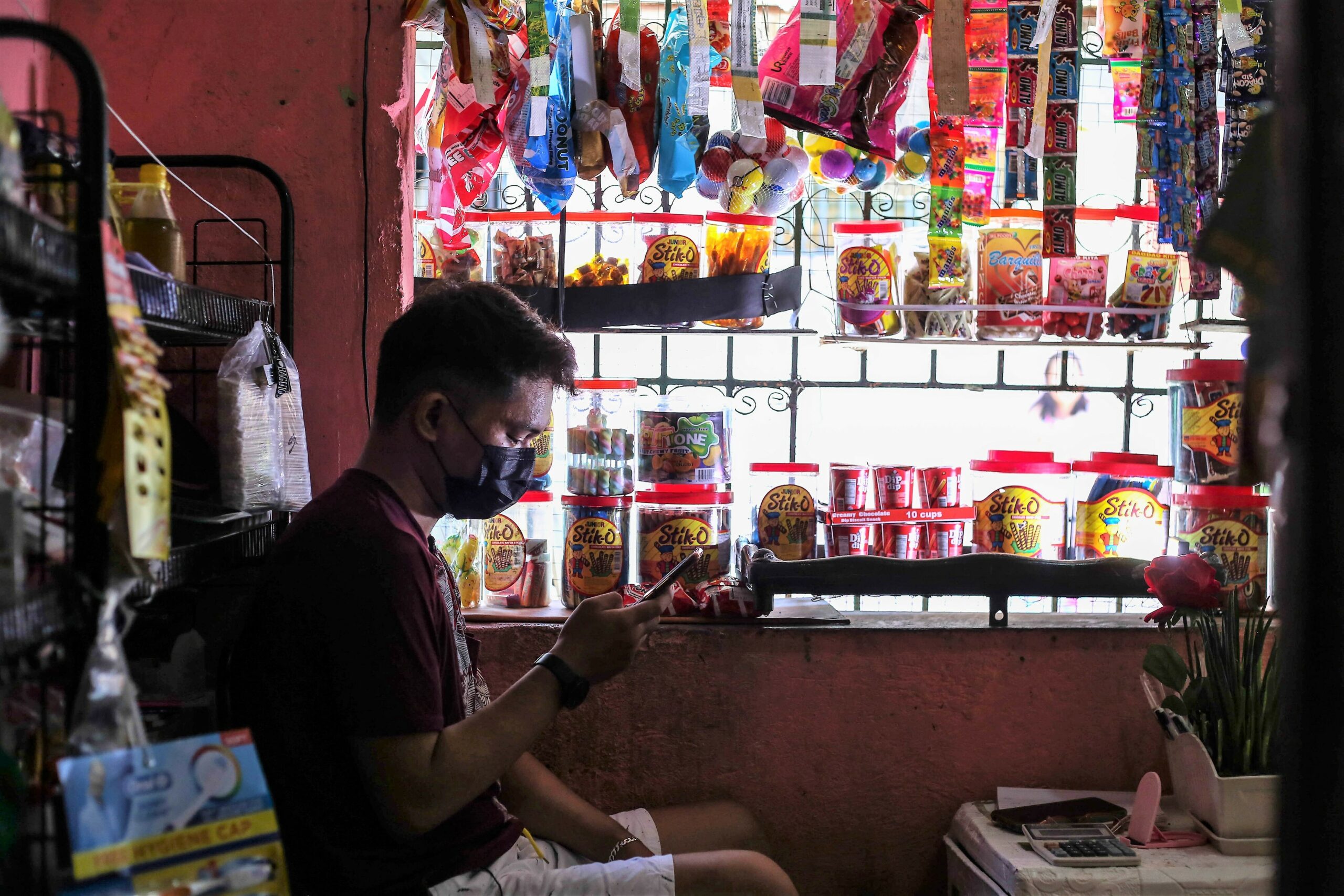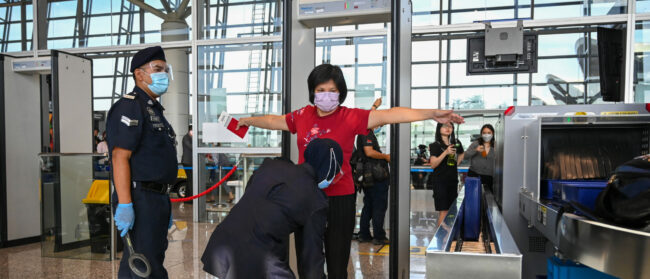In the upcoming general election in May, voters in the Philippines face a choice between the consolidation of power by elite political families and a potential reversal of the country’s recent democratic decline.
But that decision may not be free from manipulation.
Attempts to distort and control the country’s information environment are already underway and could shape the outcome of the 9 May polling if politicians and social media platforms do not change course, Freedom House research found.
The Philippines’ internet is thriving and diverse, with more than two-thirds of the population connected in 2021. But the country’s online spaces are increasingly manipulated by the government and other political forces, which have imposed intensifying restrictions on free expression.
The decline in internet freedom has coincided with a broader erosion of political rights and civil liberties under populist President Rodrigo Duterte, who will soon complete his six-year term and is constitutionally prohibited from seeking another.
Ferdinand “Bongbong” Marcos Jr., son of the late, right-wing dictator Ferdinand Marcos, leads a crowded field of candidates to replace Duterte. Marcos Jr., who has been credibly linked to the endemic corruption of his father’s government and accused of minimising the regime’s atrocities, declared an alliance with vice presidential candidate Sara Duterte-Carpio, the president’s daughter and mayor of Davao City.
Current Vice President Maria Leonor “Leni” Gerona Robredo, the main progressive candidate for president and a pro-democracy activist, is another top contender, along with former international boxing champion Manny Pacquiao and Manila Mayor Francisco Domagoso. Though the pro-Duterte wing of the ruling Philippine Democratic Party-People’s Power (PDP-Laban) party announced its support for Marcos Jr. on 22 March, Duterte had not endorsed a candidate, Reuters reported.
Paid commentators and automated accounts seeking to distort political discussion permeate digital media in the country, particularly since the 2016 elections. Misinformation efforts have surged ahead of the forthcoming election.
Fact-checkers have identified widespread networks of false or misleading content designed to undermine Robredo. In January, Twitter removed a group of accounts for manipulating the platform to promote Marcos Jr. His campaign also has enjoyed support from meme pages and fan groups spreading deceptive information. Hyperpartisan online news outlets similarly share misleading content to favour their preferred narratives.
As the election approaches, these coordinated networks will likely muddy the waters further. Politicised content manipulation makes online information less reliable, potentially shaping how Filipinos participate in campaigning and voting.

Journalists, activists and everyday internet users all risk sustained online harassment for critical commentary or reporting in the Philippines. In some cases, the harassment is coordinated by pro-government social media accounts or the authorities, as with ‘red-tagging,’ the practice of accusing people of being linked to communist groups to intimidate them into silence.
Duterte and other officials have conducted a prolonged red-tagging campaign against elected officials and activists affiliated with Makabayan, a progressive, opposition coalition. The offline and online attacks have led those targeted to fear for their safety.
Powerful politicians and business executives sometimes file libel cases in court against journalists and other internet users for their reporting or critical posts. The independent news outlet Rappler and its employees, including Chief Executive Maria Ressa, have faced several politicised, cyber libel lawsuits in recent years.
Such tactics have already bled into the election period: in December 2021, Energy Secretary Alfonso Cusi, the head of PDP-Laban, filed cyber libel lawsuits against seven media outlets and news sites for their reporting on a corruption complaint concerning his office.
Technical attacks pose another threat to Philippine media organisations, particularly those known for critical reporting on the government. A distributed denial-of-service attack temporarily brought down the Vera Files website in December 2021, likely as a reprisal for posts in which the online news outlet fact-checked misleading claims made by Marcos Jr.
Many voters rely on the internet to find reliable election information and spaces to discuss politics. Harassment, libel suits and cyberattacks – or the fear of being targeted by them – may cause users to censor themselves, deter journalists from reporting on candidates and campaigns and prevent fact-checkers from doing the crucial work of verifying information.

Many of the practices threatening the information environment surrounding elections play out on global social media platforms. In recent years, some companies – particularly Twitter and Meta, Facebook’s parent company – have ramped up countermeasures ahead of elections in countries like Ethiopia and India, although more can still be done.
Meta has committed to applying particular scrutiny to the Philippine elections. Other companies should follow suit.
YouTube and TikTok have taken commendable but limited steps to provide voter information and boost trusted media sources. Those platforms should go further, in part by escalating efforts to add prominent labels to content vetted by fact-checkers, as well as limiting how algorithmic recommendation systems spread videos identified as misleading.
TikTok, which has gained enormous popularity among Filipino users, should strengthen its content policies in ways specifically and thoroughly addressing misleading content related to elections and apply its practice of labelling state-funded media, announced in March, to the Philippines.
Social media companies with significant user bases in the country should hire more content moderators who know local languages and context. This is a particularly important measure given the linguistic and cultural expertise needed to parse misleading images, audio and video prevalent in the content shared by pro-Marcos Jr. meme accounts.
Many of the practices threatening the information environment surrounding elections play out on global social media platforms.
To help protect activists and reporters, platforms can strengthen systems to bolster digital security protocols and respond to harassment and hate speech, such as the tool Jigsaw and Twitter introduced to assist women journalists document and stop online harassment.
Candidates must play a constructive role by ensuring their campaigning does not threaten online expression and access to information. Office seekers should refrain from attacking the press, as with Marcos Jr.’s accusations of journalists holding “anti-Marcos” bias. Online targeting can escalate the risk of harassment, as supporters may follow suit and launch abusive campaigns.
Party leaders should also pledge not to file cyber libel lawsuits against internet users, including activists and journalists, and commit to repealing the cyber libel provision from the penal code if elected.
The general election is only a month away. By working now to strengthen the health of the online information space, companies and candidates can also help safeguard the integrity of voting itself.
Kian Vesteinsson is a research analyst for technology and democracy at Freedom House, where he contributes to the Election Watch for the Digital Age project.


